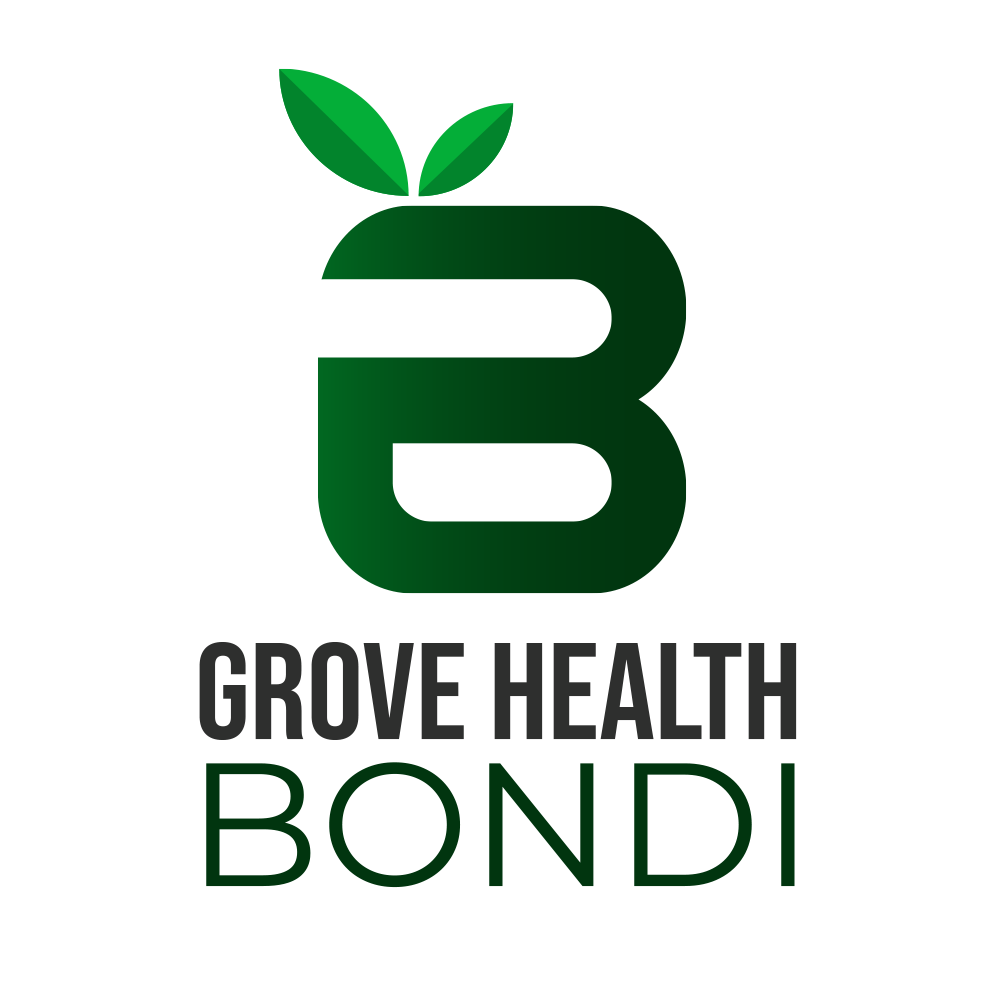Oatmeal is often hailed as an ideal companion in the weight loss journey. Not only does it aid in improving digestion, but oatmeal is also recognized for its ability to enhance cardiovascular health.
In this article, let’s explore with Grove Health Bondi the unique nutritional values that oatmeal offers, along with the potential health benefits from its consumption. Additionally, we will delve into how to prepare oatmeal to optimize weight loss. However, consuming oatmeal may not always be suitable for everyone. We will analyze specific cases and answer frequently asked questions revolving around the issue: “Is oatmeal good for weight loss?”.
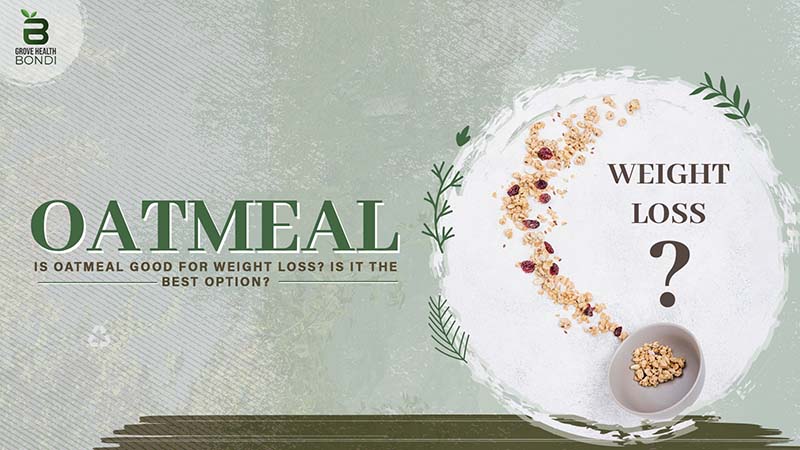
1. Understanding Oats and Oatmeal
Oats and oatmeal, two familiar ingredients in our daily culinary menu, yet not everyone has a clear understanding of them. Let’s delve into what they are!
1.1 What is Oats?
Oats, scientifically known as Avena sativa, are a widely cultivated cereal grain, typically grown for their seed harvest. These seeds are not only rich in fiber but also packed with a significant amount of vitamins, minerals, and beneficial antioxidants. Beta-glucan, a prominent type of soluble fiber in oats, is recognized for its ability to support digestive health and cardiovascular wellness.
Oats are also renowned for their excellent adaptability in temperate climates and can thrive robustly even on less fertile soils. Notably, oats are the sole food source containing avenanthramides – a unique group of antioxidants that enhance cardiovascular health and may prevent certain heart-related diseases.
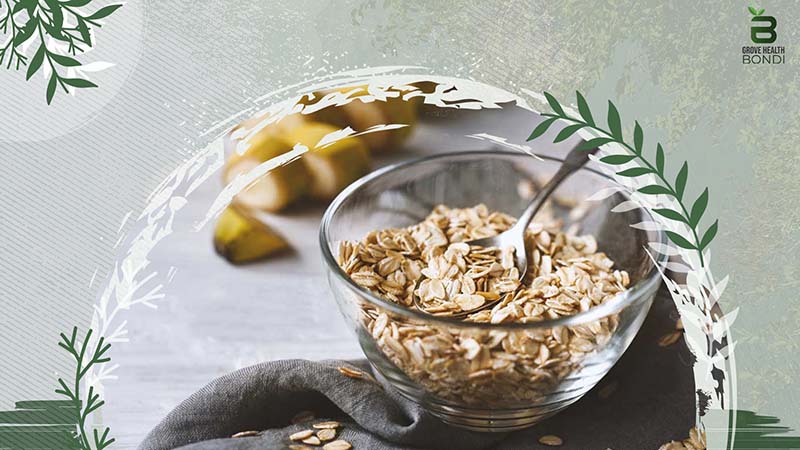
1.2 What is Oatmeal?
Oatmeal is a product made from oat grains after the outer husk has been removed, undergoing a process of steaming and flattening, or ground from hulled oat grains. This food type is often favored for breakfast, typically in the form of oat porridge, by cooking them with water or milk.
Sometimes, the term “oatmeal” is also used to refer to a type of porridge made from the bran or germ of the oat grain. You can find oatmeal sold in various forms such as traditional oats, quick oats, or instant oats, depending on the processing method and the cooking time required.
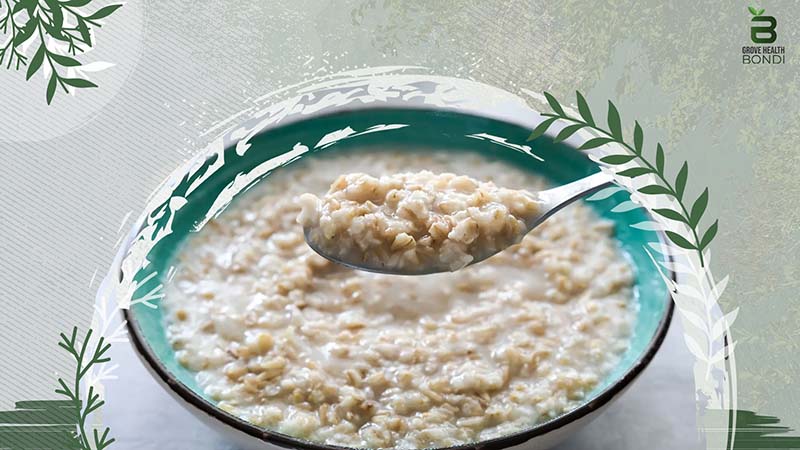
2. Nutritional Composition of Oats and Oatmeal
Oats and oatmeal are two excellent food choices for health, providing numerous essential nutrients.
Oats:
- Calorie content: 307
- Water: 8.7 grams
- Protein: 10.7 grams
- Carbohydrates: 54.8 grams
- Sugar: 0.8 grams
- Fiber: 8.1 grams
- Fat: 5.3 grams
Oatmeal (1 cup, cooked in water):
- Calorie content: 163
- Protein: 5 grams
- Fat: 3 grams
- Carbohydrates: 32 grams
- Fiber: 4.5 grams
- Sugar: 1 gram
Both oats and oatmeal are excellent sources of fiber, especially beta-glucan, which helps support weight loss, blood sugar control, cholesterol reduction, and gut health improvement. They also contain many vitamins, minerals, and antioxidants, helping to protect the body from harmful agents and support overall health.
3. Health Benefits of Consuming Oats
Oats and oatmeal are valuable sources of nutrition, offering numerous health benefits. Here are some of the key benefits:
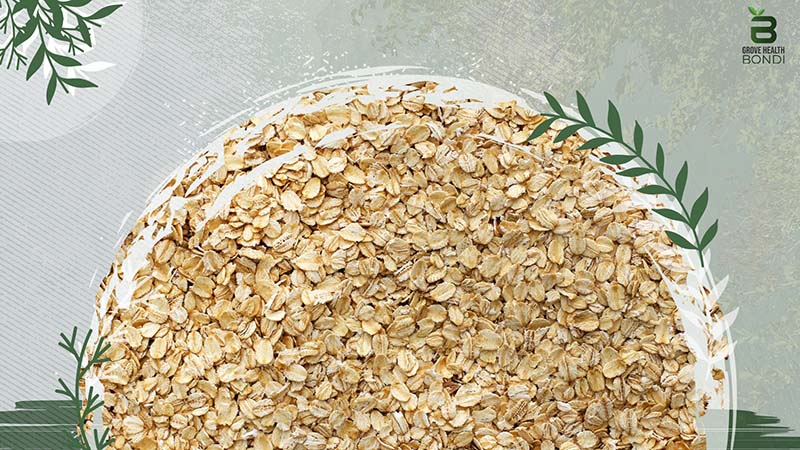
3.1. Nutritional Supplementation
Oats is packed with essential nutrients such as fiber, vitamin B, iron, magnesium, and phosphorus. These nutrients support various bodily functions, from energy production to cellular health and neurological function.
3.2. Antioxidant Properties
Oats is rich in antioxidants, including avenanthramides, which help protect the body from the damaging effects of free radicals, preventing heart disease, cancer, and other chronic diseases.
3.3. Digestive Support
The fiber in oats, particularly the soluble fiber beta-glucan, helps slow down the absorption of sugar into the bloodstream, improves blood sugar control, and reduces the risk of heart disease. The insoluble fiber in oats promotes digestion, prevents constipation, and addresses other digestive issues.
3.4. Cholesterol Reduction
The beta-glucan fiber in oats helps reduce LDL cholesterol (“bad”), preventing the risk of heart disease.
3.5. Improved Blood Sugar Control
Oats can help improve blood sugar control, particularly beneficial for those with diabetes or prediabetes.
Additionally, oats aids in weight loss, enhances skin health, boosts immune health, improves mood, and increases energy. Therefore, incorporating oats into your daily diet is a fantastic way to enhance health and promote a healthy lifestyle.
4. How Does Oatmeal Aid in Weight Loss?
Oatmeal is an excellent nutritional source that can support your weight loss journey in various ways:
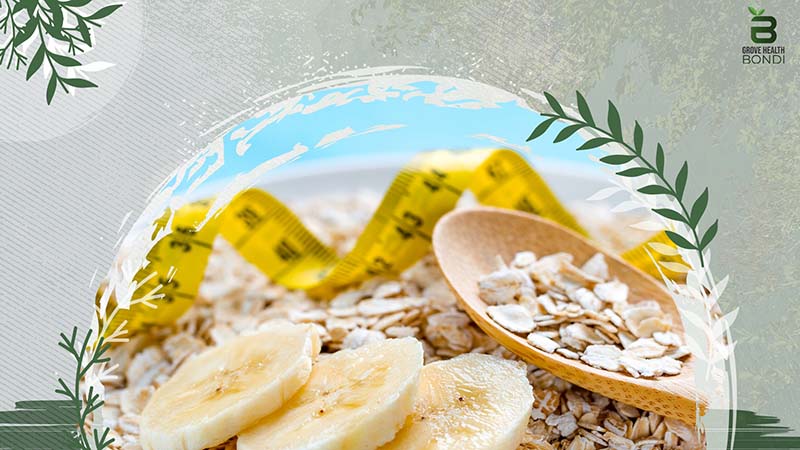
4.1. Provides a Prolonged Feeling of Fullness
Oatmeal contains beta-glucan, a type of soluble fiber, which can transform into a gel-like substance in the stomach, slowing down digestion and helping you feel fuller for longer. This helps control hunger and prevents overeating.
4.2. Stabilizes Blood Sugar Levels
Oatmeal contains complex carbohydrates, which help stabilize blood sugar levels, provide steady energy, and reduce food cravings.
4.3. Enhances Calorie Burning Process
The fiber in Oatmeal not only aids digestion but also enhances the calorie-burning process. The body has to work harder to break down and process fiber, thereby burning more calories.
4.4. Supports Metabolism
Oatmeal contains B vitamins, especially thiamine (vitamin B1), which helps the body convert food into energy. Adequate supplementation of B vitamins can support metabolism, helping the body burn calories more efficiently.
4.5. Boosts Gut Health
Beta-glucan in oatmeal acts as a prebiotic, helping nourish good bacteria in the digestive system, better control weight, and reduce the risk of obesity-related diseases.
4.6. Reduces Obesity-Related Disease Risks
Regular consumption of Oatmeal can help reduce the risk of obesity-related diseases, such as heart disease and diabetes, contributing to improved overall health and well-being.
5. How to Prepare Oatmeal for Weight Loss?
Oatmeal is an excellent choice to support your weight loss journey. Below are some suggestions for preparing Oatmeal in a healthy way:
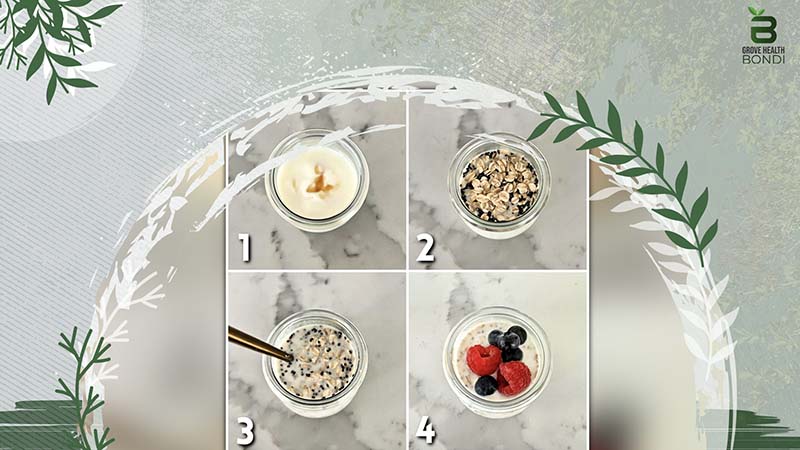
5.1. Choosing the Right Type of Oats
Steel-cut oats and rolled oats are the two best types of oats for weight loss as they are rich in nutrients and fiber. Avoid using instant oats as they typically contain fewer nutrients.
5.2. Healthy Oatmeal Preparation
Use water instead of milk to reduce calorie content. You could also try using plant-based milk like almond milk or oat milk to enhance the flavor.
5.3. Using Natural Sweeteners
Instead of using sugar, try using ripe fruits, apple sauce, honey, or maple syrup to sweeten your Oatmeal.
5.4. Adding Nutritious Toppings
You can add fruits, nuts and seeds, or dairy-free milk to your Oatmeal to enhance its flavor and nutrition.
6. Precautions When Consuming Oatmeal for Weight Loss
When using Oatmeal as part of a weight loss diet, there are some important considerations to keep in mind to ensure you achieve the best results without compromising your health:
- Pay attention to calorie intake: Although Oatmeal is a healthy choice, consuming too much can lead to an intake of unnecessary calories. Be sure to measure your Oatmeal carefully and calculate the calories to align with your weight loss goals.
- Avoid adding sugar and unhealthy fats: To enhance the flavor of Oatmeal, many people tend to add sugar, honey, or fats like cream and butter. This can significantly increase the calorie content and reduce the effectiveness of weight loss. Instead, use fresh fruits, berries, or nuts to enhance the flavor without increasing calories.
- Choose whole grain Oatmeal: Whole grain Oatmeal contains more fiber and nutrients than processed varieties. Whole grain Oatmeal helps you feel fuller for longer and provides more health benefits.
- Combine with a balanced diet: To achieve weight loss results, Oatmeal should be combined with a balanced and healthy diet, including vegetables, lean proteins, and other complex carbohydrate sources.
- Exercise regularly: While Oatmeal can support weight loss, regular exercise is also important to enhance overall health and optimize the weight loss process.
- Listen to your body: Everyone reacts differently to different foods, including Oatmeal. If you feel uncomfortable or have digestive issues, adjust your consumption or consult a nutritionist.
7. Conclusion
Is oatmeal good for weight loss? The answer is “Yes”, oatmeal can be a great support for your weight loss journey. This is because it is rich in fiber, which helps prolong the feeling of fullness and promotes digestion. However, to maximize these benefits, you should choose oatmeal that does not contain sugar, cook it with water or low-calorie milk, and add natural sweeteners and other nutritious foods. At the same time, controlling portion sizes is also crucial to avoid weight gain. Lastly, while oatmeal can aid in weight loss, maintaining a balanced diet with a variety of other foods is also very important.
